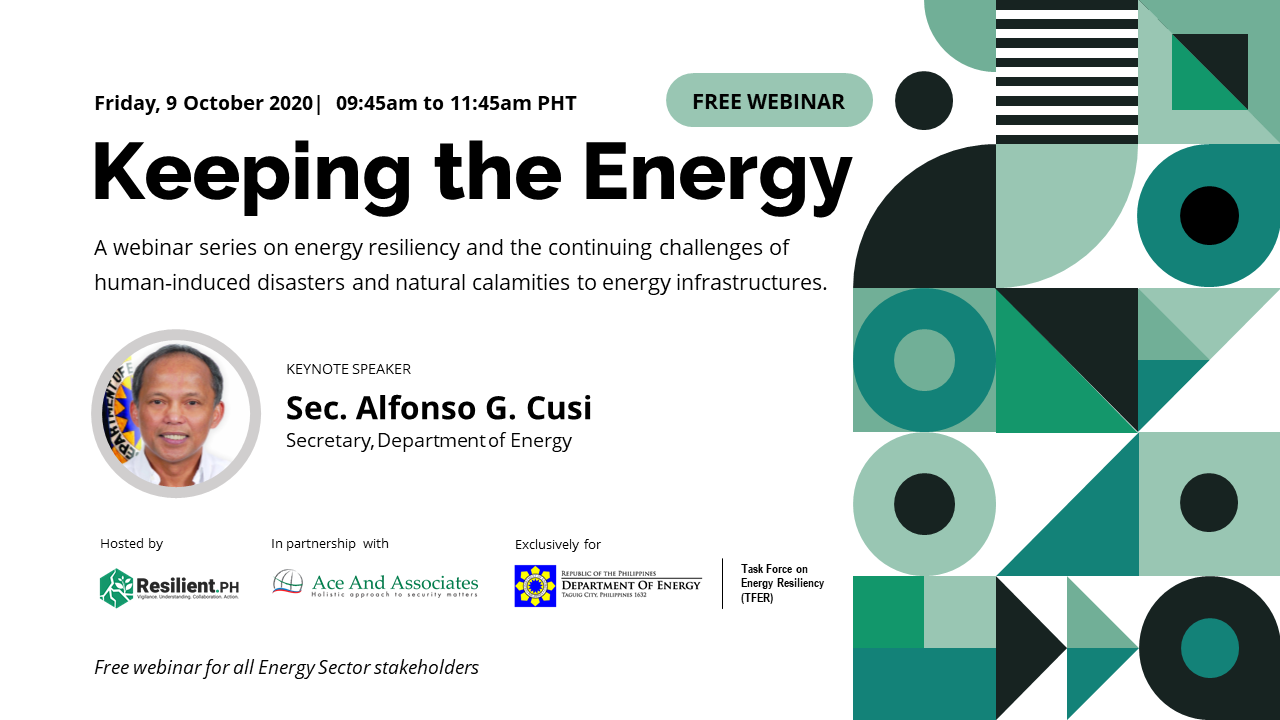Most of the things we can do today are so dependent on electric energy. From communications to life-saving surgical operations, transportation to domestic activities like cooking or relaxing with family and friends — practically everything that we do requires some form of energy. And it takes just a couple of minutes of power interruption to prove this point. Energy has become a critical component of modern living that we must continuously find ways to generate, sustain, and protect it. Equally important is ensuring that the complex ecosystem of energy producers, distributors, regulators are disaster-resilient, especially in this part of the globe.
This was precisely the theme of the recently conducted webinar “Keeping the Energy” organized by Resilient.PH, in collaboration with the Task Force on Energy Resiliency (TFER) of the Department of Energy (DOE) last October 9, 2020.
The webinar saw 1,000 participants from all across the Philippines representing various public and private stakeholders of the country’s vibrant energy sector and eager to hear fresh insights on how to incorporate disaster resilience in their respective operations.
TFER showed a comprehensive video that outlines the efforts of the DOE on disaster resilience. Undersecretary Felix William Fuentabella, who shared the message of DOE Secretary Alfonso Cusi, encouraged the participants to continue looking for better ways to serve the Filipino people by improving their delivery of energy-related products and services. Next, Undersecretary Alexander Lopez detailed the agency’s impressive efforts to ensure continuity of operations amidst the Covid-19 pandemic.
As part of Resilient.PH’s core advocacy, its Chief Resilience Officer, Ace Esmeralda, gave an overview of the Resilience Programming Framework. The Resilience Programming Framework emphasizes the importance of Asset Protection and Risk Management, Continuity Management, Disaster Risk Reduction, Opportunity and Crisis Management, and Resilience Communication to pursue resilient business enterprises and organizations.
Resilient.PH Chief Communication Officer Wally Panganiban explained the importance of Risk Communication and why it is critical for every member of the energy sector to invest time and resources to improve this vital part of the resilience programming framework.
Energy Policy and Planning Bureau (EPPB) Director Jesus Tamang summarized the insights, learnings, and discussion of the webinar in his well-crafted closing remarks. He reiterated the need for closer collaboration across all energy sector members to build genuine and sustainable disaster resilience.
For more information about the DOE Webinar, please email hello@resilient.ph.


